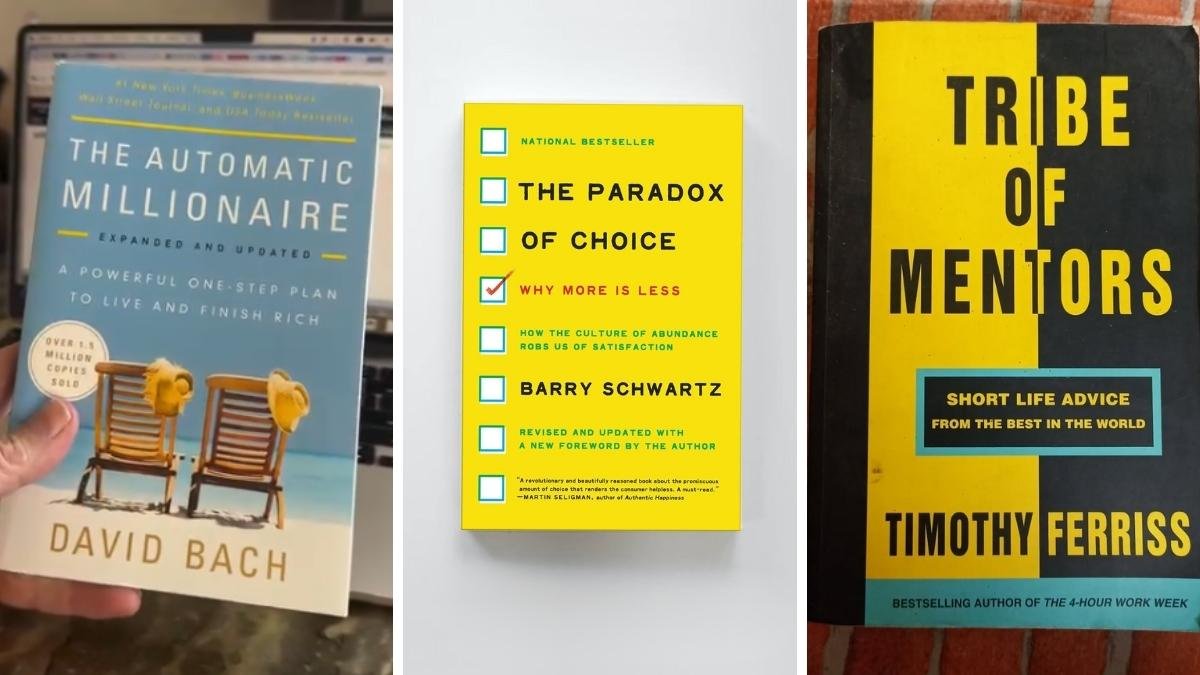
Ever felt like the “standard” business advice—work longer, save smarter, climb the corporate ladder—isn’t cutting it? What if the real answers to thriving in today’s chaotic world lie in books that challenge the status quo?
Let’s dive into some under-the-radar reads that flip conventional wisdom on its head. These aren’t your grandma’s self-help books; they’re unfiltered, controversial, and packed with insights that might just change how you see work, money, and power.
1. “The 4-Hour Workweek” by Timothy Ferriss

Tim Ferriss didn’t just write a productivity guide; he launched a rebellion against the 9-to-5 grind. In The 4-Hour Workweek, he argues that wealth is not about money but about time and freedom. Forget the hustle culture myth: Ferriss teaches readers to automate their businesses, outsource mundane tasks, and design lifestyles that prioritize experiences over endless to-do lists. But here’s the catch—this isn’t a “get rich quick” scheme. It’s a manifesto for lifestyle design, where the goal isn’t to have it all but to design what matters most.
Critics say it’s unrealistic for most people. Yet Ferriss’ radical premise—that work should serve you, not the other way around—resonates deeply in an era of burnout. Whether you’re outsourcing tasks to virtual assistants or negotiating remote work deals, this book arms you with strategies to reclaim your time.
2. “Rich Dad Poor Dad” by Robert Kiyosaki

Kiyosaki’s iconic book is a love-it-or-hate-it classic. He contrasts the “poor dad” mindset of working for money with the “rich dad” approach of “making money work for you.” His message? The rich don’t play by the same rules—they leverage assets like real estate, stocks, and side hustles to build passive income. The book’s genius lies in its simplicity: wealth isn’t about a big salary but about building systems that generate cash even when you sleep.
Sure, Kiyosaki’s anecdotes can feel dated, and his advice isn’t one-size-fits-all. But his core argument—that traditional education often teaches financial ignorance—is a wake-up call. If you’ve ever fantasized about escaping the paycheck-to-paycheck cycle, this book is a bold starting point.
3. “Influence: The Psychology of Persuasion” by Robert Cialdini

Why do people say “yes” when they mean “no”? Cialdini’s Influence dissects the invisible forces that manipulate our decisions. From reciprocity (“I’ll scratch your back if you scratch mine”) to scarcity (“act now before it’s gone!”), He reveals how marketers, politicians, and bosses exploit human psychology to control behavior.
This isn’t just about sales tactics—it’s a survival guide. By understanding these principles, you can resist manipulation and use ethical persuasion to your advantage. Whether negotiating a raise or building a brand, knowing how power dynamics shape persuasion gives you an edge in a world saturated with noise.
4. “The E-Myth Revisited” by Michael E. Gerber

Gerber’s book is a gut-punch for aspiring entrepreneurs. Most small businesses fail because founders mistake working in their business for working on it. The result? A never-ending cycle of burnout and chaos. Gerber’s solution? Treat your business like a franchise—systematize everything, hire for your weaknesses, and become the CEO, not the worker bee.
This is tough love for dreamers. If you’ve ever romanticized entrepreneurship as “doing what you love,” Gerber’s “those who do, don’t manage” mantra will force you to rethink success. A hard read, but one that could save your business—or your sanity.
5. “The Paradox of Choice” by Barry Schwartz

In a world obsessed with options, Schwartz argues that more choices don’t equal more happiness. From endless streaming services to countless career paths, decision fatigue drains us. His radical insight? Limiting your options can reduce stress and increase satisfaction.
This idea flips the script on “maximizing opportunities.” Instead of chasing every possibility, Schwartz encourages strategic prioritization. Whether decluttering your wardrobe or narrowing your career goals, embracing constraints can free you to focus on what truly matters.
6. “Tribe of Mentors” by Timothy Ferriss

Tim Ferriss’ follow-up to his iconic 4-Hour Workweek isn’t a traditional book—it’s a curated conversation with 100+ experts, from billionaires to Olympic athletes. Ferriss strips away the fluff, asking mentors to share their “unconventional wisdom” and daily rituals. Whether it’s Steve Wozniak’s obsession with pocket calculators or Mark Cuban’s contrarian investment strategies, the book is a buffet of “life hacks” for thriving in chaos.
Critics call it a “cluttered collection,” but that’s the point. Ferriss doesn’t offer a single blueprint; he provides diverse perspectives to help you remix ideas into your path. For anyone tired of cookie-cutter advice, this is a radical reminder that success isn’t one-size-fits-all.
7. “The Automatic Millionaire” by David Bach

David Bach’s The Automatic Millionaire turns the “sacrifice now, enjoy later” narrative on its head. He argues that building wealth isn’t about deprivation but about automating good habits. By paying yourself first, automating savings, and investing early, Bach claims anyone can achieve financial security, regardless of income.
Bach’s most controversial idea is the “Latte Factor”: small daily expenses (like that $5 coffee) add up to massive opportunity costs over time. Critics call it oversimplified, but his message resonates: wealth is a system, not a sprint. For anyone paralyzed by financial overwhelm, this book is a refreshingly practical reset.
8. “Daring Greatly” by Brené Brown

Brené Brown’s research on vulnerability has shaken up industries, and Daring Greatly brings her insights to leadership. She argues that vulnerability isn’t weakness but a source of innovation and trust. By embracing uncertainty and imperfection, leaders can foster cultures of creativity and resilience.
Brown’s radical takeaway? Authenticity beats perfection. She challenges the “macho” model of leadership, urging bosses to admit mistakes and prioritize human connection. In an era of remote work and burnout, this book offers a blueprint for leading with empathy without losing edge.






